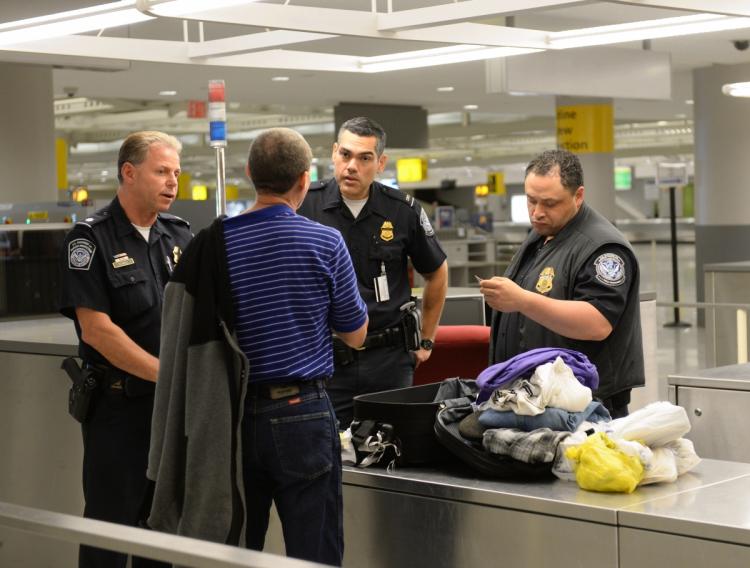In criminal law, illegally obtained evidence is referred to as “Fruit of the Poisonous Tree” and cannot be used by prosecutors in trial. However, to prevent such use a motion to suppress evidence must be filed with the court. While every case is unique, criminal defense and civil forfeiture cases present very similar opportunities for defense. Motions to suppress evidence and other common defenses can be used to address the following:
- Illegal Stops and Detention
- Violation of Miranda Rights
- Illegal Search and Seizure
Power of the Exclusionary Rule
What is Fruit of the Poisonous Tree? What is a Motion to Suppress?
The Exclusionary Rule exists to prevent law enforcement from violating people’s rights and may be useful in your case.
The Rule: When law enforcement illegally obtains evidence, the evidence cannot be used against you at trial (it is subject to exclusion). Such evidence is called “Fruit of the Poisonous Tree” because it is the “fruit” of an illegal search.
**DEFENSE: We challenge the admissibility of illegally obtained evidence by filing a “Motion to Suppress” or a “Motion to Exclude Evidence” with the judge. If the motion is won, evidence will be excluded from admission at trial. Depending on the circumstances, this may have a devastating effect on the prosecution’s case. In the best case scenario, it will force prosecutors to drop the case or, alternatively, engage you in meaningful settlement negotiation.
Illegal Stops and Detention
Illegal stops and detention, such as illegal traffic stops, are one of the most common situations where evidence is illegally obtained by police. But for the illegal stop and detention, police would have never discovered the evidence at issue, therefore the evidence is subject to the Exclusionary Rule.
The Rule: For a stop and detention to be lawful, police must have good reason to believe you committed a crime, were committing a crime, or were about to commit a crime. This includes non-criminal infractions that a person may receive a citation for (i.e. speeding). While police are allowed to engage a person in consensual conversation, there must be a legal basis to stop and detain. If you are not free to leave, you are detained.
**DEFENSE: If the police stopped and detained a person without a reasonable suspicion that a crime had been committed, was being committed, or was about to be committed, any evidence obtained as a result is subject to the Exclusionary Rule. To challenge an illegal stop and detention, we would file a Motion to Suppress all evidence obtained as a result of the stop. If granted, the loss of evidence may prove devastating to the prosecution’s case.
Violation of Miranda Rights
Your right to remain silent and your right to an attorney are sacred rules in American criminal law.
The Rule: Before police can question someone in custody, police must advise the person that they: 1) have the right to remain silent, 2) have the right to counsel, and 3) that counsel would be appointed to them if they cannot afford to pay for one themselves.
When police fail to properly advise a person of their Miranda Rights before questioning them in custody, any evidence obtained as a result is subject to the Exclusionary Rule – including incriminating statements and confessions.
**DEFENSE: If police failed to properly advise you of your Miranda Rights before interrogating you in custody, we may be able to file a Motion to Suppress. If the judge agrees, any evidence obtained as a result of that unlawful interrogation would be suppressed. Similar to suppressing evidence obtained as a result of an illegal traffic stop, suppression of evidence obtained from an unlawful interrogation may also be devastating to the prosecution’s case.
Illegal Search and Seizure
Under the U.S. Constitution, all people have a Fundamental Right to privacy and private property.
The Rule: Police may only enter upon and search private property with a warrant. However, there are exceptions to this rule, including “exigent circumstances” such as a fire (i.e. police do not need a warrant to search a burning building for people who need help).

Another common exception happens during a traffic stop when police smell the odor of cannabis coming from your vehicle. When this occurs, police can search your vehicle to find the source of the odor.
**Defense: When police conduct an illegal search and seizure, a Motion to Suppress can be filed asking the judge to exclude all illegally obtained evidence. Like the other motions discussed in this section, winning a Motion to Suppress based on illegal search and seizure can be devastating to the prosecution’s case because it causes their evidence to become inadmissible at trial.
Have a Question?
Tell us what happened! Call 954-462-3636 or Contact Us to schedule a free consultation.